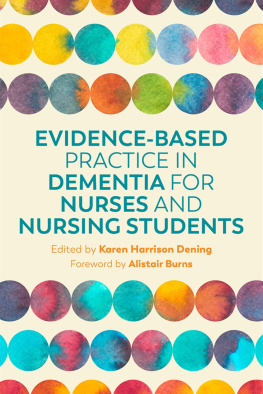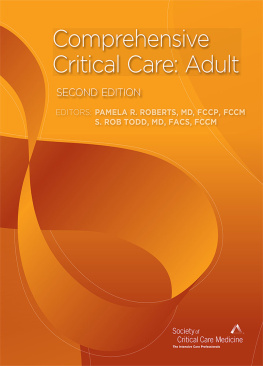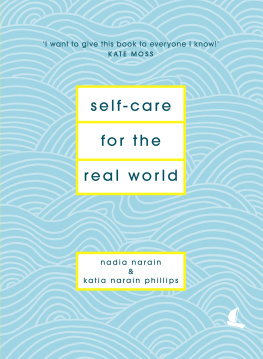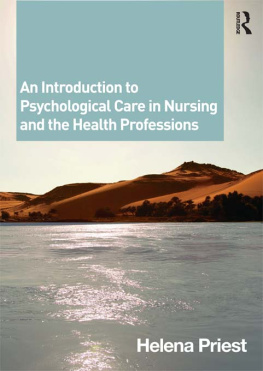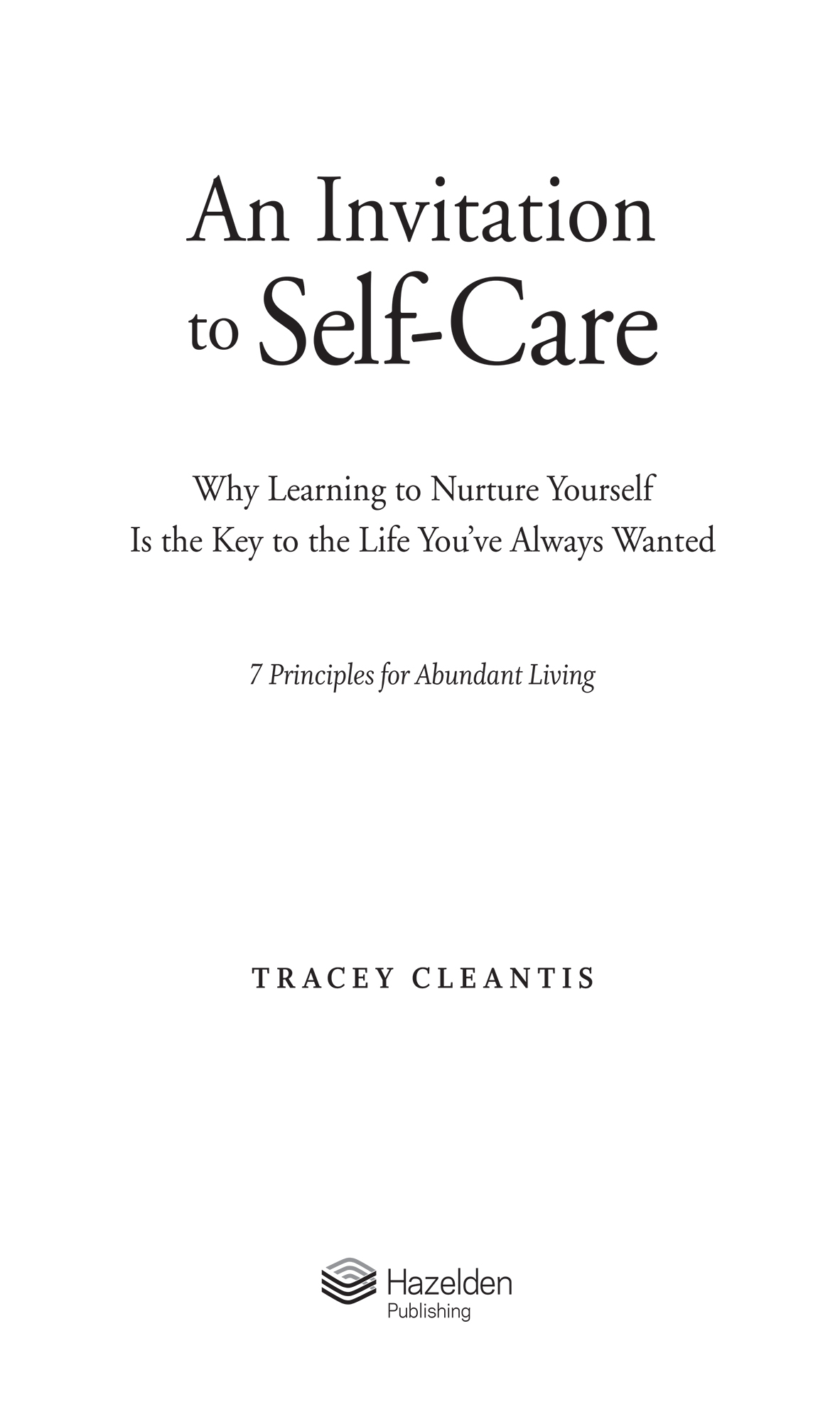No one gets through this life without a few twists and turns, disappointments and surprises. This book gives you the tools to become the architect of your own support system so that you can survive any crisis and learn to thrive again.
Lee Woodruff, best-selling author of Perfectly Imperfect
As a nutrition and fitness expert, I have seen firsthand how taking care of your health and body can radically change your life for the better. Traceys new book guides readers to create a powerful self-care program that is uniquely theirs. Whether your goals are physical, emotional, spiritual or mental, you cant miss with this book. You will discover your strengths and areas for growth. By taking excellent care of yourself, you will have the stamina, courage, and energy to live the life youve always dreamed of.
JJ Virgin, best-selling author of Sugar Impact Diet and The Virgin Diet
French women learn from a young age to practice the art of self-care. Its the secret to their famous mystery and confidence. So how can we, as Americans, borrow a little of that savoir-faire and take better care of ourselves? Easy. Read Tracey Cleantiss wonderful book An Invitation to Self-Care . It will change your life!
Jamie Cat Callan, author of French Women Dont Sleep Alone, Ooh La La! and Bonjour, Happiness!
Hazelden Publishing
Center City, Minnesota 55012
hazelden.org/bookstore
2017 by Tracey Cleantis
All rights reserved. Published 2017
No part of this publication, either print or electronic, may be reproduced in any form or by any means without the express written permission of the publisher. Failure to comply with these terms may expose you to legal action and damages for copyright infringement.
ISBN: 978-1-61649-679-1; ebook 978-1-61649-748-4
Library of Congress Cataloging-in-Publication Data is on file with the Library of Congress.
Editors notes
In most cases, names, details, and circumstances have been changed to protect the privacy of those mentioned in this publication. When real names are given, it is with the persons permission.
This publication is not intended as a substitute for the advice of health care professionals.
Cover design by Terri Kinne
Interior design and typesetting by Hillspring Books, Inc.
To my ten-year-old self, who learned that she was unlovable and unworthy of care
To my adult self, who is disproving that idea by loving and caring for herself every day
And to every other person out there who can relatebecause you, too, are worthy of love and self-care
ACKNOWLEDGMENTS
To my self-care teachers (in chronological order): Frances Martel, Charlotte Dubin, Karen Elizabeth Cohen, Wendy West Brenninkmeijer, Deborah Glatt Brautman, and Pamela Albro. Without each and every one of you, I couldnt have achieved the quality of self-care Ive attained. Thank you for being my teachers.
Enormous thanks to Jennie Nash, Don Fehr, Mindy Keskinen, Sid Farrar, and Emily Reller: without you all, this book would be a vague and unrealized idea. And thank you to everyone who patiently endured my asking So what do you do for self-care in this area of your life? and generously answered my questions over and over again.
Thank you, Keith Dwyer, for your endless encouragement, support, patience, and love.
Introduction
WHEN WE THINK ABOUT SELF-CARE, we might think first of taking care of our physical being: fitness, beauty, keeping up appearances. Or we might think of dealing with stress, physical illness, or mental burnoutemergency care, as it were. Or maybe we imagine jumping on the latest self-help bandwagon, hoping that this one will make a difference.
The book in your hands aims to change all that. Its an invitation to see self-care as an attitude that permeates your life, a consistent self-replenishment. Self-care is a state of mind that offers a sense of abundance, a well that never runs dry. In this book well dig down to the depths of self-carewhich is to say that this is a book about how to really and truly be an adult. I believe that the ability to do real self-care is one hallmark of adulthood, even though most adults are crappy at it.
When I was in graduate school twenty years ago, studying to become a therapist, many of my professors would occasionally mention the importance of self-care in our profession. Being a therapist is hard, so be sure to do lots of self-care, the prof might say, and Id create a heading in my notes and underline it Self-Care and then expectantly wait for the details. What was this vital and necessary thing that would allow me to do the work I wanted to do without getting drained and depleted?
But the secrets were never shared. Having duly noted the need for self-care, the professor would move on to the next topic, such as legal and ethical issues, and that self-care page of my notebook remained empty.
As I built my career over the next decade, I kept hearing the idea of self-care mentioned in professional settings: in conversations among therapists, in consultations, at conventions. And then the mainstream media picked it up, and the topic expanded outward: self-care was seen as critical not just for health care professionals, but for all of us. Life is hard, so be sure to do lots of self-care, the womens magazines cooed (or screamed)but just like my professors, they never outlined the steps, the details, that would assure me I was doing this ongoing self-care thing right. We were all supposed to take time for ourselves in order to deal with stress, achieve balance, be better parents, better workers, and better mates. A good, solid concept. But where was the how-to? The self-care advice and examples always seemed simplistic and superficial: Keep a journal. Take a yoga class. Light a candle.
Lovely ideas. But really, how impactful is that candle in the face of a life filled with the daily ordinary and extraordinary challenges and stresses that we all endure? (Years later, a friend griped to me, Self-care is more than a stupid candle!)
Herbal teas, massages, pedicures... and, more recently, memory improvement apps and meditation podcastsall of these promise to ease our stress, tame our tensions, or widen our bandwidth, but in the long run, they dontnot really. Used on their own, theyre the equivalent of self-care Band-Aids: they hold us together and treat the pain for now, but they dont get to the heart of the matter.
Now dont get me wrong: theres a place in our lives for these things. But when we treat ourselves with these small indulgences as an attempt at primary self-care, we might as well be saying, I deserve this day at the spa ( or this night out with the girls/Dove dark chocolate bar/new phone/pretty dress/scented candle... ) because I am burned out and poorly taken care of. So, to postpone caring for myself in the really critical areas, I am giving myself this little treat.
Looking around at the array of treats, I knew there had to be more to it. Was there some secret society of self-care practitioners who could enlighten me if only I could figure out the secret handshake? Where did they meet? I wanted to find them and ask so many questions. What does self-care really mean? Where do I start? How do I change the habits of a lifetime? How do I maintain my progress? And how, exactly, does self-care ease the difficulty of being a therapist charged with helping people through trauma, heartbreak, and hopelessness?
When I started my own therapy practice, my understanding of self-care got a lot more practical, because I could feel the impact of my work on my mind, body, and spirit. If I didnt eat well, sleep well, or take regular breaks, I burned out, melted down, and had a hissy fit or three. I began to see that to do a good job for my clients, I needed to really care for myself.
Next page

